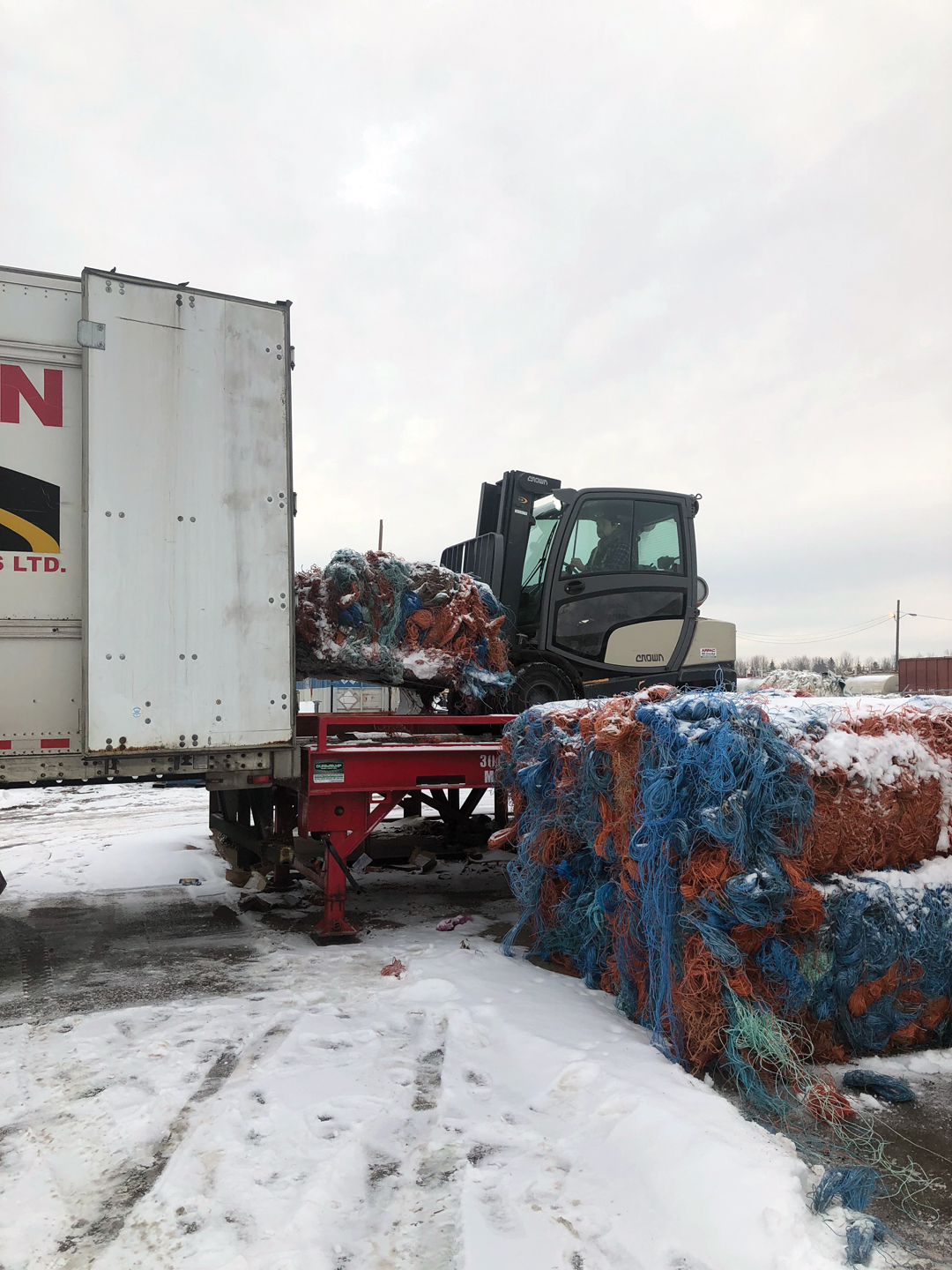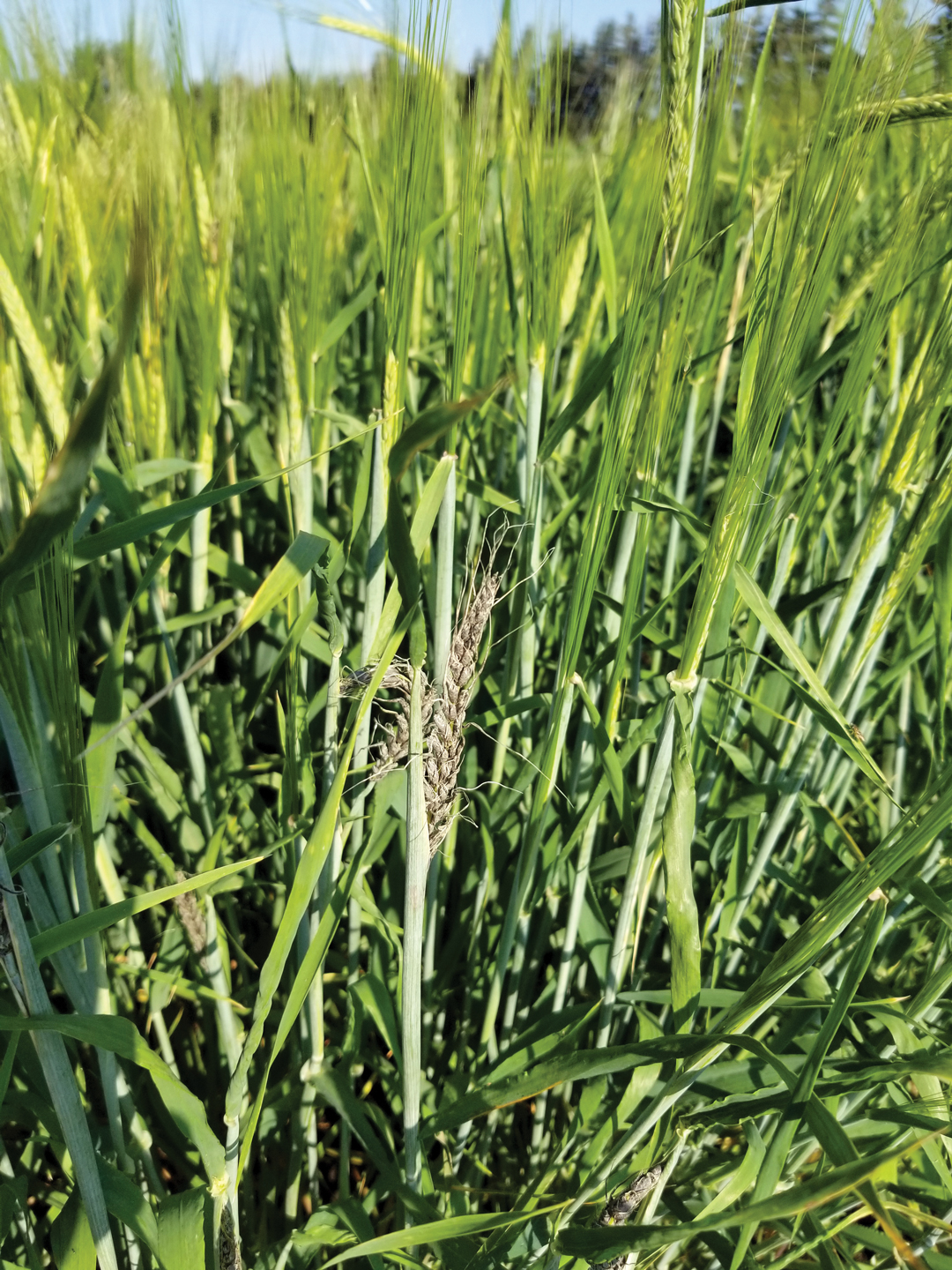TAKING ENVIRONMENTAL ACTION
BY SHANNON VANRAES • PHOTO COURTESY OF CROP SECTOR WORKING GROUP
For years, Alberta Barley region four director Neil Gorda has trucked used baling twine and other agricultural plastics to his local landfill. Now he hopes a new pilot project will give Alberta farmers the opportunity to recycle spent plastics.
“Surveys have been done, and over 50 per cent of all the plastic that we use … has been burned,” said Gorda, citing the Government of Alberta’s 2012 Agricultural Plastics Recycling Agricultural Producers Survey and its 2015 Market-Based Solutions for Used Agricultural Plastics: Survey of Municipalities. Gorda farms near Willingdon and represents Alberta Barley on the Agricultural Plastics Recycling Group (APRG), which formed in 2017 to tackle the issue. “It’s actually illegal to burn plastic and the toxic fumes that come off of plastic when it’s burned aren’t good for anybody, but that’s what’s happened.”
With that in mind, Alberta Minister of Environment and Parks, Shannon Phillips, announced $750,000 in funding for a three-year pilot project last fall. The goal of the initiative is to develop a provincewide agricultural plastics recycling program. Details are still being hammered out, but the APRG has sent a comprehensive proposal to the Government of Alberta. It includes the creation of a provincial network of collection points for grain bags, twine, silage plastic, bale wrap and netting.
Gorda said the next steps will include hiring a program manager, conducting a market analysis and creating a communications strategy. “Saskatchewan has already done it and Manitoba is just on the verge of finishing its three-year pilot program, so we’re kind of following the footsteps of what’s happening over there,” he said.
Fiona Briody, program policy coordinator for Alberta’s Crop Sector Working Group, said farmers need to recycle on-farm plastics if they want to continue building consumer confidence and maintain social licence.
“We could have just sat back and said, ‘Oh, we don’t need to do this, there are no regulations.’ And we didn’t do that, even though we know that there will be a cost that we will incur, and it will be another process for people to take that plastic to where it needs to go,” she said. “But we are concerned about the environment and we know this is a problem.”
Certain Alberta municipalities already have programs in place. Al Kemmere is president of the Rural Municipalities of Alberta and chair of the APRG. He lives in Mountain View County, which is home to companies that truck plastic south of the border for recycling. Other municipalities have tried shipping plastics overseas, but with China no longer accepting significant quantities, options are limited.
“Others have collected it and baled it, or collected it and tried to clean it somewhat and then get it to another market. But often in those markets they’re a little particular on the quality of the product,” said Kemmere. “But we’re looking for something that’s going to be a little bit more predictable.”
While existing companies in Alberta do recycle agricultural plastics, Kemmere said the goal is to involve them in the pilot project rather than compete against them. “We’re not looking at pushing anybody out of the way, we’re looking to include as many as we can,” he said. “If they’re already doing the business, how do we strengthen their business? If their new business is coming online, well, that’s entrepreneurial spirit and we’re looking for that, too. We would rather bring them in and work together.”
How much a provincewide recycling program will cost Alberta farmers also remains to be determined. In Saskatchewan, farmers pay an environmental fee of 25 cents per kilogram on agricultural plastics. “The pilot is a great opportunity to learn many things about how the system could work in Alberta,” said Briody.







Comments